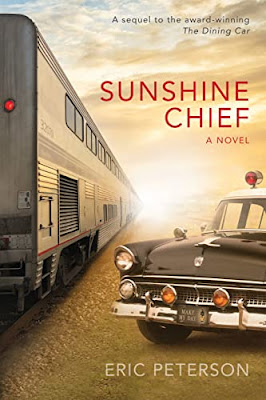As you may know, I usually do a Favorite Books of 2021 list-post about now. My rules are not to review books I have edited (Like the wonderful new Sunshine Chief by Eric Peterson which I highly recommend) and not to talk about books that have gotten talked about plenty, like the caustic, moving, and sobering Maid by Stephanie Land.
Since I recently did a blog post in August about a handful of great books I read this year (by one of my long-time fave authors, Michael J. Vaughn), I am going to forgo writing another list.
I read 90 books this year, or that is the number that Goodreads has for me; I am sure there were more, and of course I also read two dozen or more manuscripts. If you are curious to see my full Goodreads list, you can find it on a new tab, right here.
If you wonder why almost all of my Goodreads book reviews are 4 stars and above, it is quite simple: I seldom review a books I don't like, and I don't normally like to "damn with faint praise," either. And sometimes, now that I am in the "twilight of my youth" as Russel would say, I don't even finish a book I am not enjoying or intrigued by.
A great list for books read in 2021 can be found at this link to my favorite weekly newsletter, Spark, written by Elizabeth Marro, which will open in a new tab and which I highly recommend. We all need to find and celebrate joy and wonder as much as possible, and I find that celebration—among other places—weekly in my inbox, courtesy of Spark. Betsy talks about her writing (and non-writing) life, interviews authors (and their dogs!). She also refers me to some very fine books that I would otherwise have missed, like Lyn Kanter's Her Own Vietnam, which I loved, and which opened my eyes as much as Betsy's own Casualties.
Don't forget to buy at least one person a book for the holidays, if you haven't already. If you can't find the perfect title for that loved one, send them a gift card (or electronic ecard) they can use at Verbatim Books or Powell's or whatever your favorite bookstore is. Word to the wise: If you don't support your local independent bookstore, then don't be surprised if one day it is gone when you need it.
I look forward to plenty more reading and writing and editing and blogging and traveling in 2022. I hope you'll continue to join me here, monthly.
Hasta pronto!





